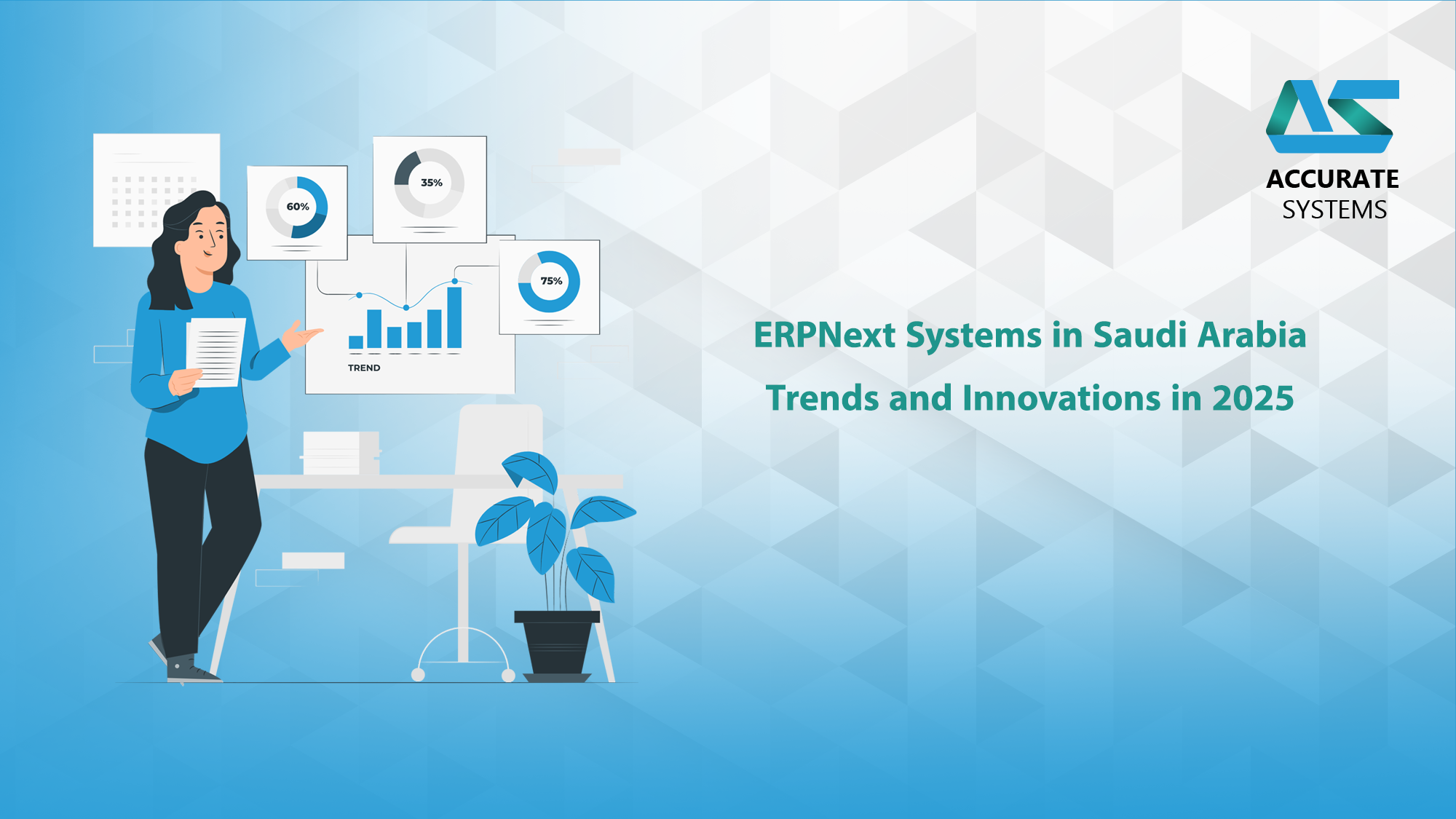Enterprise Resource Planning (ERP) systems have become indispensable for organizations looking to optimize operations and integrate various business functions. In Saudi Arabia, the demand for advanced ERP solutions like ERPNext is rapidly increasing, fueled by the Kingdom’s Vision 2030 initiative, which aims to diversify the economy and foster digital transformation. This article explores the latest trends, key players, and implementation strategies for ERPNext systems in Saudi Arabia in 2025.
Key Trends in ERPNext Systems in Saudi Arabia
- Artificial Intelligence (AI) Integration: AI is reshaping ERP systems, introducing capabilities such as predictive analytics, process automation, and intelligent decision-making. ERPNext leverages AI-driven tools to enable businesses to analyze vast datasets, forecast trends, and automate repetitive tasks, thus enhancing efficiency and productivity.
- Cloud-Based Solutions: The shift towards cloud ERP systems continues to dominate in 2025. ERPNext’s cloud-based solutions offer unparalleled scalability, cost-effectiveness, and accessibility, allowing businesses to access real-time data from anywhere. This aligns perfectly with the growing trend of remote work and the need for seamless collaboration.
- Mobile Accessibility: ERPNext focuses on mobile-first designs to cater to the increasingly mobile workforce. Employees can now manage operations, monitor performance, and make decisions through smartphones and tablets, ensuring productivity on the go.
- Industry-Specific Customization: ERPNext offers tailored solutions to meet the unique requirements of different sectors, such as manufacturing, retail, healthcare, and construction. This customization ensures better alignment with industry-specific processes and compliance with local regulations.
- Enhanced User Experience (UX): Modern ERP systems like ERPNext prioritize user-friendly interfaces to reduce training time and improve user adoption rates. Intuitive designs and advanced functionalities make these systems accessible even to non-technical users.
- Blockchain Integration: ERPNext integrates blockchain technology to enhance security, transparency, and traceability. In industries such as supply chain and manufacturing, blockchain ensures the integrity of data and streamlines processes.
Why ERPNext Leads in Saudi Arabia
- Open-Source Flexibility: ERPNext stands out for its open-source framework, which allows businesses to customize the system extensively. This flexibility makes it a cost-effective solution for organizations of all sizes.
- Localized Solutions: ERPNext offers features designed to meet the specific needs of Saudi businesses, including compliance with ZATCA’s e-invoicing regulations and support for Arabic language interfaces.
- Community-Driven Innovation: ERPNext benefits from a global community of developers and users who continuously enhance the platform. This ensures that ERPNext stays at the forefront of innovation and addresses evolving business needs.
- Comprehensive Functionality: ERPNext covers a wide range of business functions, including accounting, human resources, inventory management, and customer relationship management, all in one integrated platform.
ERPNext Adoption in Key Industries
- Manufacturing: ERPNext helps manufacturers streamline production processes, manage inventory, and ensure quality control. AI-powered tools provide predictive maintenance and optimize supply chain operations.
- Retail: Retailers leverage ERPNext for inventory management, customer relationship management, and point-of-sale integration. These systems enable real-time tracking of sales and inventory, enhancing operational efficiency.
- Construction: In the construction sector, ERPNext facilitates project management, resource allocation, and compliance with industry regulations. It also provides detailed analytics for cost control and risk management.
- Healthcare: ERPNext streamlines patient management, inventory tracking, and regulatory compliance. These systems enhance operational efficiency and improve patient care outcomes.
Steps for Successful ERPNext Implementation
- Needs Assessment: Clearly define business goals and requirements to select ERPNext modules that align with organizational objectives. This step involves input from all stakeholders to ensure the solution meets diverse needs.
- Vendor Selection: Choose a reputable ERPNext provider with experience in the Saudi market. Look for partners offering localized solutions that comply with Saudi regulations and cultural nuances.
- Customization and Integration: Customize ERPNext to meet industry-specific needs and integrate it with existing business processes. Ensure seamless data migration and compatibility with third-party applications.
- Training and Change Management: Provide comprehensive training to employees to facilitate smooth adoption. Address resistance to change by highlighting the benefits of the new system and involving users in the implementation process.
- Ongoing Support and Maintenance: Ensure continuous support from the ERPNext provider for updates, troubleshooting, and system optimization. Regularly evaluate the system’s performance to identify areas for improvement.
ERPNext and Vision 2030: A Perfect Alignment
Saudi Arabia’s Vision 2030 emphasizes digital transformation as a cornerstone for economic diversification. ERPNext plays a crucial role in achieving this vision by:
- Enabling businesses to operate more efficiently and transparently.
- Supporting innovation through advanced analytics and AI.
- Enhancing compliance with regulations, such as ZATCA’s e-invoicing requirements.
- Driving sustainability by optimizing resource utilization.
Conclusion
As Saudi Arabia progresses towards its Vision 2030 goals, the adoption of advanced ERP systems like ERPNext is set to accelerate. Businesses across industries are leveraging ERPNext to enhance efficiency, support growth, and stay competitive in a rapidly evolving market. With trends like AI, cloud computing, and blockchain reshaping the ERP landscape, 2025 promises to be a transformative year for ERP solutions in the Kingdom.


